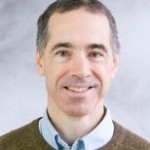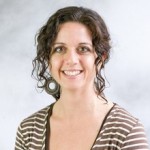FEATURES
New HD faculty explore the power of identity and positive youth development
 Human Development has added two new faculty members this year, Misha Inniss-Thompson and Adam Hoffman. Click here to read more.
Human Development has added two new faculty members this year, Misha Inniss-Thompson and Adam Hoffman. Click here to read more.
Connecting communities with brain science
 The Bronfenbrenner Center for Translational Research (BCTR) is launching a new project – the Community Neuroscience Initiative, (CNI) headed by four Human Development faculty, Anthony Burrow, Marlen Gonzalez, Eve De Rosa, and Adam Anderson. All have been engaged in STEM outreach and engagement and envision CNI as a way to build connections between neuroscience research, STEM education, and community empowerment. Click here to read more.
The Bronfenbrenner Center for Translational Research (BCTR) is launching a new project – the Community Neuroscience Initiative, (CNI) headed by four Human Development faculty, Anthony Burrow, Marlen Gonzalez, Eve De Rosa, and Adam Anderson. All have been engaged in STEM outreach and engagement and envision CNI as a way to build connections between neuroscience research, STEM education, and community empowerment. Click here to read more.
The risk of silence and the underreporting of concussions

Concussion injuries among high school and college athletes have become a central concern in youth sports. Prompt self-reporting of a concussion immediately improves brain recovery and is necessary to reduce second-impact syndrome, rapid swelling of the brain after a person receives a second concussion before symptoms of the first concussion have subsided. Unfortunately, repetitive head injuries in adolescents and young adults are often underreported. Peter Ajayi, HD’19, David Garavito, JD/PhD ’21, and Valerie Reyna, professor of human development, are the first to detail an association between socioeconomic status (SES) and concussion reporting intentions among adolescents and young adults. Click here to read more.
HD students achieve during the COVID-19 pandemic

Despite the restrictions on campus to prevent the spread of COVID-19, graduate and undergraduate students in Human Development persisted and excelled in their research and outreach activities. Click here to read more.



 Karl Pillemer
Karl Pillemer


 Little research has been conducted on understanding estrangement and reconciliation in families. Karl Pillemer's forthcoming book,
Little research has been conducted on understanding estrangement and reconciliation in families. Karl Pillemer's forthcoming book, 
 Although Commencement exercises for the Cornell Class of 2020 were canceled to prevent the spread of COVID-19, the Department of Human Development honored the academic achievements of this year's outstanding students with its highest awards.
Although Commencement exercises for the Cornell Class of 2020 were canceled to prevent the spread of COVID-19, the Department of Human Development honored the academic achievements of this year's outstanding students with its highest awards. Deanna Kocher, a graduate student in Tamar Kushnir's
Deanna Kocher, a graduate student in Tamar Kushnir's 
 Discover recently added resources, including podcasts of interviews with HD faculty from HD Today e-NEWS Listen Notes
Discover recently added resources, including podcasts of interviews with HD faculty from HD Today e-NEWS Listen Notes  As we determine what the new "normal" looks like during a pandemic, the uncertainties have increased stress and depression among those struggling to get their lives back on track.
As we determine what the new "normal" looks like during a pandemic, the uncertainties have increased stress and depression among those struggling to get their lives back on track.  Anthony Ong
Anthony Ong















 Three of
Three of 




